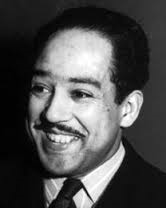Difference between revisions of "Langston Hughes"
From QueerBio.com
| (2 intermediate revisions by the same user not shown) | |||
| Line 1: | Line 1: | ||
| − | [[File: | + | [[File:langstonhughes.png|200px|thumb|left|Langston Hughes]] |
==Country== | ==Country== | ||
| Line 16: | Line 16: | ||
Notable for 'The Langston Hughes Reader' (1958). Member of the Harlem Renaissance. Multiple awards. His original works portrayed people whose lives were impacted by racism and sexual conflicts; he often wrote about southern violence. This reality-based poetry offended many in the community. Notable poems include 'The Negro Speaks of Rivers' (1921). | Notable for 'The Langston Hughes Reader' (1958). Member of the Harlem Renaissance. Multiple awards. His original works portrayed people whose lives were impacted by racism and sexual conflicts; he often wrote about southern violence. This reality-based poetry offended many in the community. Notable poems include 'The Negro Speaks of Rivers' (1921). | ||
| + | |||
| + | ==See Also== | ||
| + | |||
| + | * [[LGBTQ Participation in the Harlem Renaissance]] | ||
| + | * [[Race Activists in the LGBTQ Community]] | ||
==Further Reading/Research== | ==Further Reading/Research== | ||
Latest revision as of 00:58, 26 April 2022
Country
United States
Birth - Death
1902 - 1967
Occupation
Poet
Description
Notable for 'The Langston Hughes Reader' (1958). Member of the Harlem Renaissance. Multiple awards. His original works portrayed people whose lives were impacted by racism and sexual conflicts; he often wrote about southern violence. This reality-based poetry offended many in the community. Notable poems include 'The Negro Speaks of Rivers' (1921).

